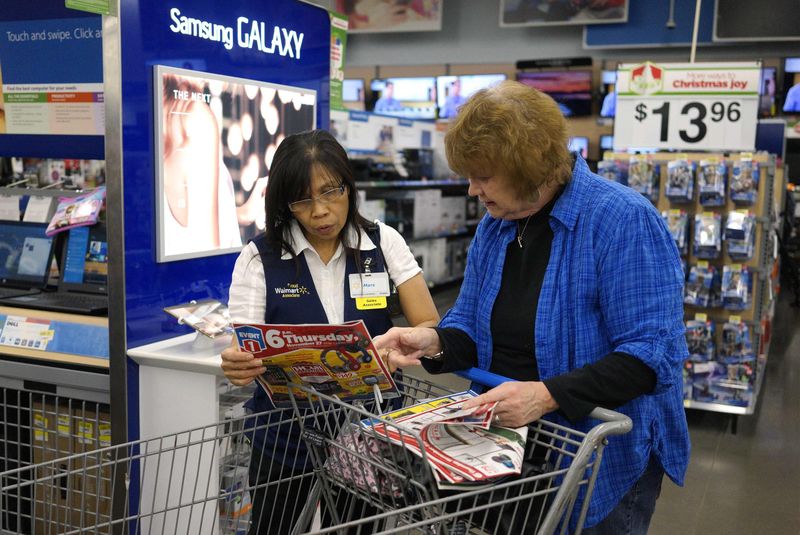Shares of Walmart (NYSE:WMT) are down more than 6% in premarket trading Tuesday after the company said it expects a decline of 1% in FY EPS.
The company reported a Q1 adjusted EPS of $1.30, down from $1.69 per share in the year-ago period, missing the consensus estimates of $1.48 per share. Revenue came in at $141.57 billion, up 2.4% year-over-year, and above the analyst consensus of $139.09 billion.
Total U.S. comparable sales excluding gas expenses rose 4% in the quarter, while analysts were expecting a 2.26% growth. Walmart-only U.S. stores comparable sales excluding gas were up 3% in the period, topping the estimated 2%. 2-year same-store sales stack surged 9%, compared to the analyst projection of 7.66%.
Walmart said results “reflect the unusual environment” and characterized the bottom-line results as “unexpected.”
The company expects an FY EPS decline of roughly 1%, compared to its previously estimated mid single-digits increase.
It also expects Walmart-only U.S. comparable sales growth of around 3.5%, excluding gas, and anticipates Q2 EPS to remain flat or grow briefly, down from its previous forecast of low to mid single-digits increase.
Goldman Sachs analyst Kate McShane expects the WMT stock “to trade lower today given the 1Q miss, along with lowered FY22 guidance.”
Stifel analyst Mark Astrachan said WMT delivered “disappointing” results.
“That said, solid comp growth and revised guidance reflects low-double-digit U.S. grocery growth, in part driven by inflation, though Walmart is gaining share. General merchandise weakness, comp down low-double-digits, reflects softness in discretionary categories lapping prior year stimulus. Cost inflation is unsurprising, though the magnitude is greater-than-anticipated, and is not likely to abate over the medium-term given revised guidance. We anticipate more color on the earnings call but would think cost pressure is likely to indicate Walmart will continue to increase sales ahead of volumes, passing through pricing. We would view this as generally favorable for other retailers and staples companies, as it signals a generally benign promotional environment,” Astrachan wrote in a client note.
By Senad Karaahmetovic
